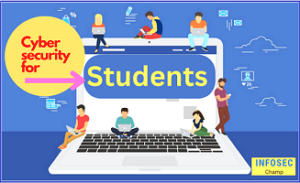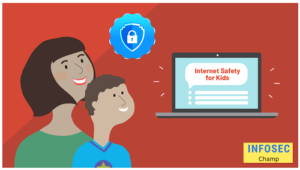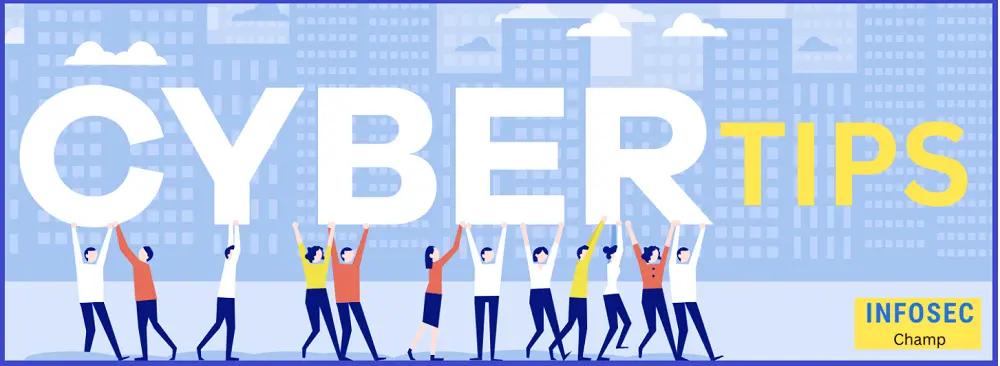Cybersecurity is becoming a more crucial issue for everyone in the modern world, including pupils in schools. Though they might be more tech-savvy than older generations, young people can also be more open to internet dangers. Schools should give pupils the information and resources they need to stay safe online because of this. We’ll examine ways to approach “cyber security for kids” and “cyber security for students.”
There are many strategies to increase school pupils’ online security. Making sure students have access to high-quality cybersecurity education is the first step. They can learn how to protect themselves against these risks and the risks associated with using technology as a result.
Providing pupils with the most recent and potent cyber security tools and resources is another method to increase their cyber security. This could include software that can assist block harmful websites and kid-friendly internet content or that can aid in data recovery from lost or stolen devices.
Naturally, no amount of training or resources can offer total protection from all potential online risks. Because of this, it’s critical that schools have policies and processes in place to handle any problems that do arise.
A plan for dealing with a data breach or having a designated point of contact for reporting cybersecurity incidents are two examples of how to do this. Schools may assist keep their children safe and give them the best opportunity for success in the digital age by implementing these measures.
We now take the internet for granted, which increases the risks to our individual cyber security. It is crucial that students are aware of the risks associated with being online as they become more dependent on technology for their academics. The following advice can help keep your youngster secure online:
- Help your youngster create secure passwords and never reveal them to anybody.
- Teach your child that clicking on links or attachments from strangers could be dangerous.
- Make sure the antivirus software and security fixes on your child’s gadgets are current.
- Remind your child that whatever they publish online could be seen by everyone when you talk to them about being respectful and responsible online.
- control over social media posts and the content of such messages
- observing your children’s online behavior
- You can help keep your child secure as they use technology by paying attention to these easy tips.
Cyber security for school students | Cyber security awareness for students | Set up basic internet rules for students

Students need to be aware of cyber security threats now more than ever because of the increased reliance on technology in the classroom. Here are some guidelines to help safeguard your child’s data as they use the internet at school:
- Encourage children to never disclose their passwords to anybody and to use strong passwords for all of their internet accounts.
- Teach children to be cautious when opening attachments or accessing links from unidentified sources because they can be infected with malware.
- Remind them that posting private information or images online exposes them to access by unauthorized people.
- Encourage children to tell a responsible adult about any shady behavior or texts.
- Your youngster can assist to keep their information safe online by using these easy tips.
How do you explain cybersecurity to a child? | Can kids learn cyber security?

All pupils in schools need to be concerned about cyber security. Students need to be aware of the risks associated with cybercrime now more than ever because technology is being used more and more in every part of life. There are several quick actions that kids can take to safeguard themselves online, such as:
- Never online disclose personal details.
- Maintaining their computer and software; programs and applications should be updated, not dated (life).
- Being watchful with what they download and click on
- Utilizing secure passwords
Students may keep themselves safe online and avoid becoming victims of cybercrime by adhering to some basic guidelines.
The right set of tools to help keep them safer | Top 7 sets of tools for cyber security for students | Educational Cybersecurity Resources for Kids
Tools will be furnished with inexpensive items that are crucial for general safety.
- Password protection (with MFA)
- Anti-virus in the system
- Anti-phishing/Anti-Spam
- Webcam protection at pc or laptop level
- Content filter & blocker
- VPN facility for network protection
- Secure Wireless Connection & in-build operating system firewall enabled
It’s crucial for children to learn about cyber security as more and more of the world goes online. It’s critical to understand how to safeguard ourselves from hackers because so much of our lives now take place online, from socializing and banking to shopping and banking to leisure.
All school students may take a few easy steps to help keep themselves safe online. First of all, they should never provide any personal information online to anyone, including their home address or phone number.
Second, they should be cautious about what links they click on because doing so can cause malware to be installed on their computer. Last but not least, they should check to see if their computer is running the most recent anti-virus software, as this will help to shield them from the most recent online threats.
Schoolchildren can contribute to their internet safety by using these straightforward tips. Everyone should be concerned about cyber security, and we should all take steps to safeguard our personal information from hackers and security scams.
Conclusion:
In the paragraphs above, we talked about some fundamental cyber safety measures for children and students. If you have any questions on children’s cyber security, please post them in the comments area. You can ask me anything about children’s cyber security in the comment box if you have any questions.
Discussed more than ten cyber security tips, the best seven sets of student cyber security tools, and online learners’ strategies for being safe online.
FAQ:
1. How do you explain cybersecurity to a child?
Ans: We covered basic points like personal data sharing, password sharing etc.
2. Can kids learn cyber security?
Ans: Basic information related to cyber security should be taught to kids & students.
3. How do you teach cybersecurity to kids?
Ans: By providing important and very basic information will safeguard them, mentioned in the above topics also, but yes. learn more at https://www.esafety.gov.au/kids-quiz

